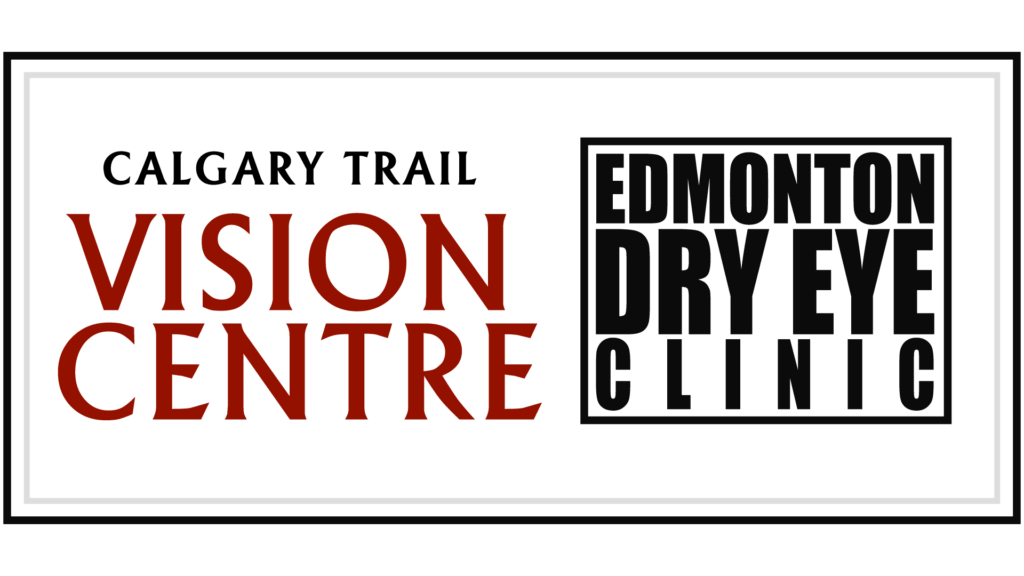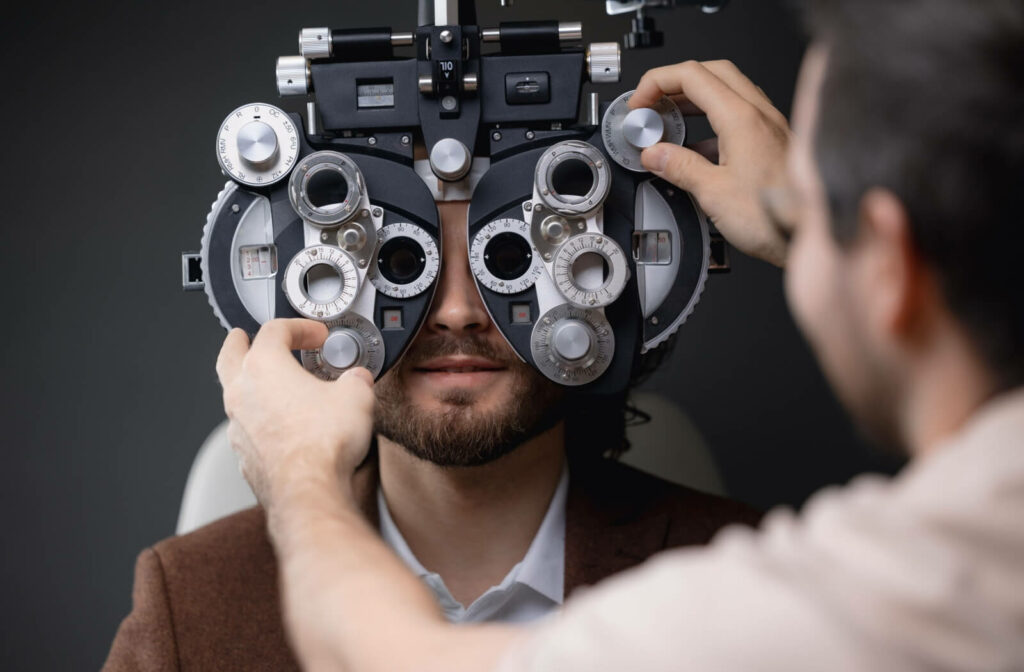Regular comprehensive eye exams are a key part of your family’s overall health care routine. They offer much more than just a check for clear vision; they are an essential part of caring for your eye health. These visits can help detect potential issues early, as many diseases can be detected before you even notice symptoms.
The right schedule for you and your family depends on several factors. A general guideline is that children should have annual exams, while adults may need them every 1–2 years based on age and health. Your eye doctor can help you determine the appropriate frequency for your specific needs.
Recommended Eye Exam Frequency by Age
The Canadian Association of Optometrists offers helpful guidelines for eye exam frequency. These recommendations are for people with a low risk of developing eye problems. Your personal schedule might look different based on your health profile.
Infants and Toddlers: Birth to 24 Months
A baby’s first comprehensive eye exam should happen between 6 and 9 months of age. This initial check is vital for assessing early visual development. It helps confirm their eyes are working together correctly.
Preschool Children: 2–5 Years
Your child should have at least 1 eye exam between the ages of 2 and 5. This visit is key to identifying vision issues that could affect their learning and development. Good vision is a foundation for success in school.
School-Aged Children and Teens: 6–19 Years
Once children start school, annual children’s eye exams are recommended. Vision can change quickly during these growth years. Regular check-ups help support academic performance and participation in activities.
Adults: 20–64 Years
During these years, an eye exam every 2 years is typical for those with low risk. These regular exams help keep your prescription current and provide a baseline for your eye health. If you wear contacts or have other health concerns, you may need more frequent visits.
As you enter your 40s, vision changes become more common. Your eye doctor may recommend more frequent exams because this is also when the risk of many age-related eye conditions begins to increase.
Adults: 65 Years and Older
It’s a good idea to see your eye doctor for annual exams after age 65. Regular monitoring becomes increasingly crucial for detecting conditions such as glaucoma and cataracts.
Why Regular Eye Exams Are Important
Consistent eye exams with your eye doctor in Edmonton serve 2 main purposes. They help keep your prescription for glasses or contacts up to date and allow us to check the overall health of your eyes. Many conditions lack obvious symptoms in their early stages.
Early Detection of Eye Conditions
A comprehensive eye exam is a valuable tool for finding early signs of common eye diseases. This early detection enables timely management, which can help protect your vision. Your exam can help find signs of:
- Glaucoma
- Cataracts
- Age-related macular degeneration
- Diabetic retinopathy
A Look at Your Overall Health
Your eyes can provide important clues about your general health. By examining the blood vessels in your eyes, we can sometimes detect signs of other health issues, which is why a regular eye exam can detect diabetes and other systemic conditions. This connection shows that eye care is part of your overall well-being.
When You Might Need More Frequent Eye Exams
Your eye doctor may suggest a different exam schedule based on your personal health and risk factors. Certain situations may call for more frequent check-ups to closely monitor your vision and eye health.
If You Wear Glasses or Contacts
Your vision can change over time, even if it feels subtle. Regular exams confirm that your prescription is right for your needs, so you can see as clearly and comfortably as possible. These exams are particularly important for those who require contact lens exams and fittings to maintain corneal health.
If You Have Certain Health Conditions
People with conditions like diabetes or high blood pressure may need annual diabetic eye exams. These conditions can affect the blood vessels in your eyes. Regular monitoring helps manage any related changes in eye health.
If You Have a Family History of Eye Disease
You should let your eye doctor know if eye conditions run in your family. For example, a family history of an eye disease like glaucoma could influence your exam schedule. This information helps us create a personalized care plan for you.

What to Expect at Your Eye Exam
Your visit to the eye doctor involves much more than just reading an eye chart. Understanding what to expect at your eye exam can help you prepare for the different steps involved.
Your Health and Vision History
We’ll start by talking about your medical history, your family’s health history, and any lifestyle factors that could affect your eyes. You can also discuss any symptoms or concerns you may have. This conversation helps us understand your unique visual needs.
Vision Tests
Next, we perform a series of tests to evaluate your vision. These tests determine how well you see at different distances and check for refractive errors such as astigmatism or myopia. This part of the exam helps us determine whether you need corrective lenses or an updated prescription.
Eye Health Evaluation
Your eye doctor will use equipment to look at the internal and external parts of your eyes. We check the pressure inside your eyes and examine structures like the retina and optic nerve, sometimes using techniques like retinal imaging. This evaluation is key to detecting eye conditions.
Tips for Eye Health Between Appointments
Caring for your eyes at home is just as important as your regular exams. These simple habits can help protect your vision and support your overall eye health day to day:
- Eat a balanced diet: Foods rich in vitamins and antioxidants, such as leafy greens, fish, and fruits, are beneficial for your eyes.
- Protect your eyes from the sun: Always wear sunglasses that block UV rays when you’re outdoors.
- Follow the 20-20-20 rule: When using digital devices, take a 20-second break every 20 minutes to look at something 20 feet away.
- Wear proper eye protection: Use safety glasses for sports or work activities that could pose an eye hazard.
- Wash your hands: Make sure to wash your hands thoroughly before touching your eyes or handling your contact lenses.
- Get regular exercise: Physical activity supports your overall health, including your eye health.
Book Your Next Exam Today
Staying on schedule with your eye exams helps protect your vision. Whether it’s been a year or a few years since your last visit, booking an appointment is a simple and proactive step. It’s a way to take care of yourself and your family.
We’re here to serve you and your family, and help you manage your visual health. Contact our team at Calgary Trail Vision Centre to book your next eye exam.


